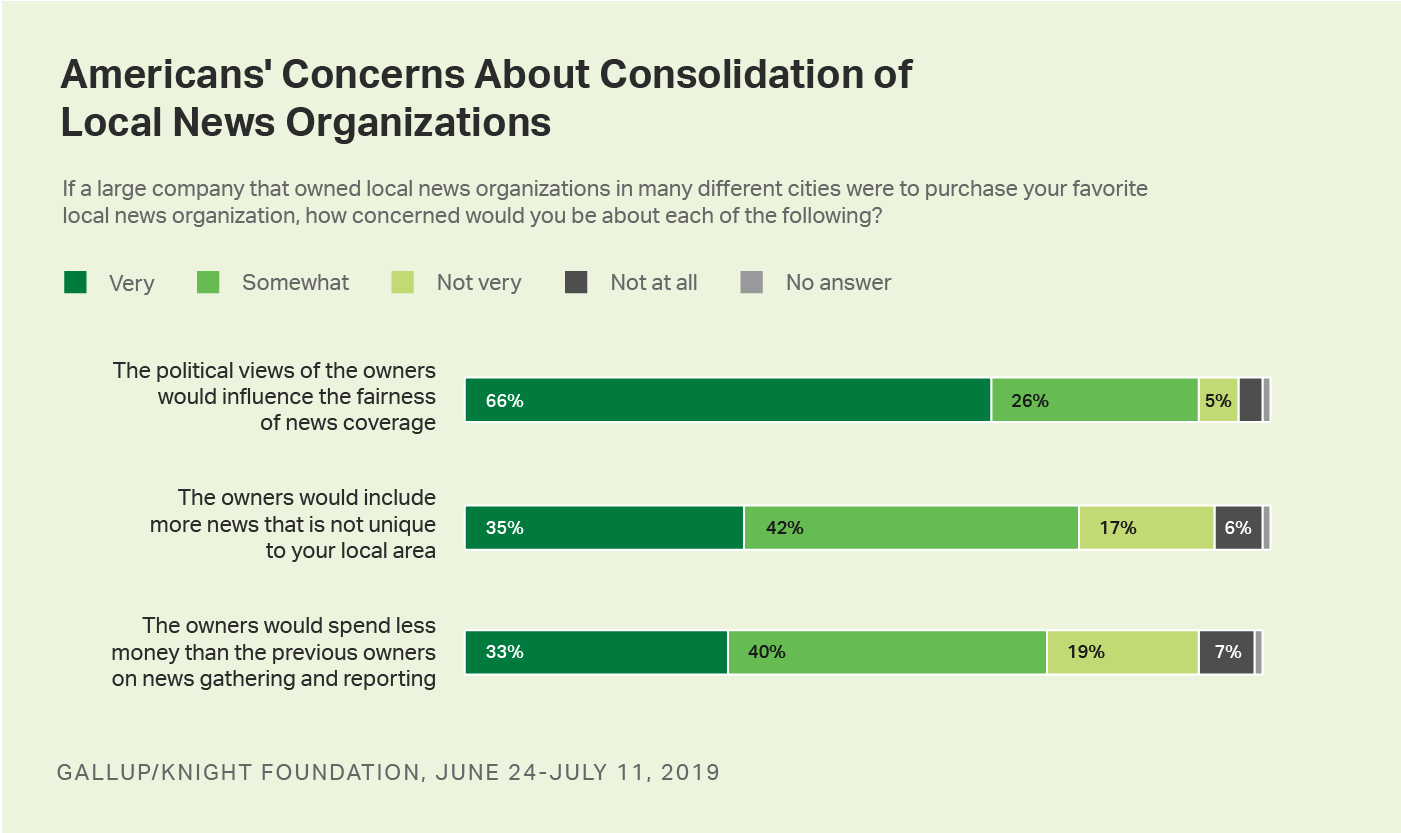Remember the (legitimate) spook that Deadspin video stitching together local Sinclair anchors around the country introduced? From creator Timothy Burke’s explanation:
In light of Sinclair’s attempted acquisitions of more local TV stations, the Knight Foundation and Gallup polled Americans this summer on their views of local news consolidation. (The more recent merger-in-progress of the country’s two largest newspaper chains adds further justification for the question.)It was just a strange, spooky thing that happened, cut together in an attempt to play the strangeness and spookiness up…. Absent any background on media consolidation in this country, nor knowledge of what Sinclair is and what political angles they push on their viewers, such a middle-of-the-road viewer could simply conclude that “you can’t trust the news,” and, when confronted with this video evidence that “they’re all reading from the same script,” simply mark down his or her internal confidence in news media in general.
They found that respondents were much more concerned about national ownership bias than about potential cuts in the budgets or local news coverage.
“More than nine in 10 Americans are ‘very’ (66%) or ‘somewhat’ (26%) concerned that the owners’ views would influence coverage if a large company purchased their local news organization,” Megan Brenan and Zacc Ritter wrote of the findings. “Meanwhile, 77% of U.S. adults express concern that new owners would cover less news unique to their local area — 35% are very concerned about this and 42% are somewhat concerned.”

The GateHouse-Gannett merger is still being worked out, and though more details emerged this week, the companies’ employees likely have as many questions as the readership. There’s no “explain a very complicated transaction to your audience 101,” but Trusting News has some general guidelines on laying out your newsroom’s ethics and funding in a clear way. (Business breakdowns are nice and all too.)
“Americans’ greatest concern about the trend of ownership consolidation of local news is the potential for political bias seeping into their local news coverage,” the Gallup/Knight authors wrote. “Perceived bias in the news reduces trust, which could erode overall trust in local news as an institution.”
That’s a remarkable result, given that — with Sinclair a very clear exception — most consolidation in both local TV and newspapers has been driven far more by the quest for profit than for hearts and minds. No one is arguing that the private equity funders behind the Gannett–GateHouse merger want to influence politics in Peoria and Poughkeepsie; they just want to make money.
(If anything, chain ownership often reduces an outlet’s political distance from the middle; plenty of local newspaper publishers and station owners liked the political influence their positions came with.)
Meanwhile, the cuts to newsrooms and the delocalization of coverage are very much real and have real impacts on local communities. It’s a sign of just how differently people view their local news outlets (broadly unpartisan, trusted, familiar) from national ones (highly ideological, distant, worthy of skepticism).
You can’t avoid consolidation these days — well, unless you’re the Department of Justice — but journalists can work to mitigate its impact on their audiences’ trust.
Leave a comment